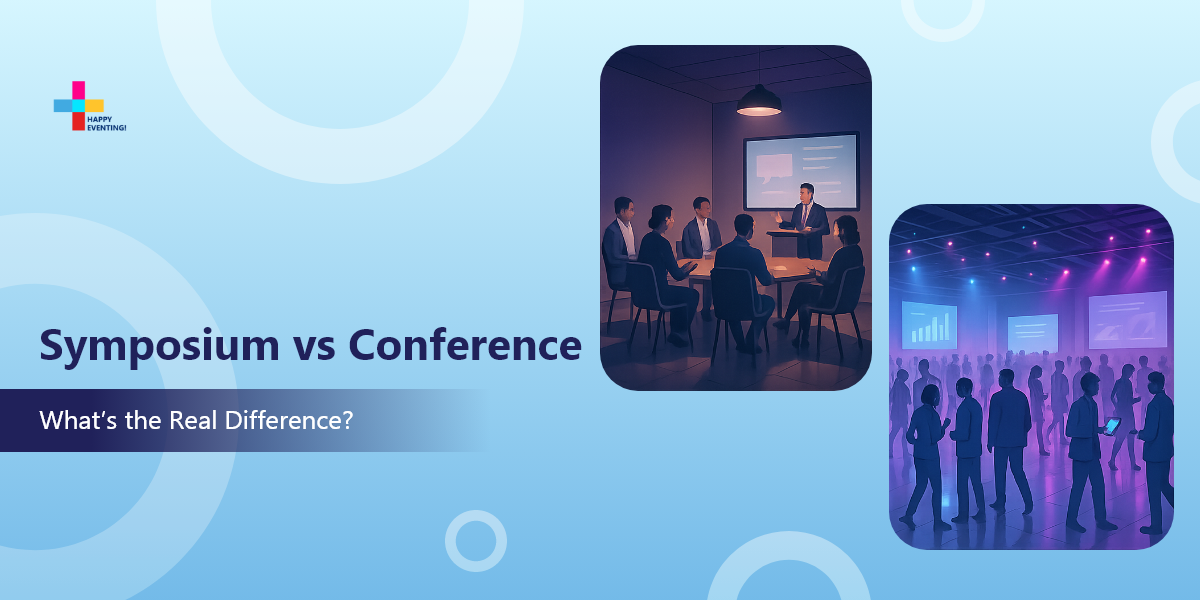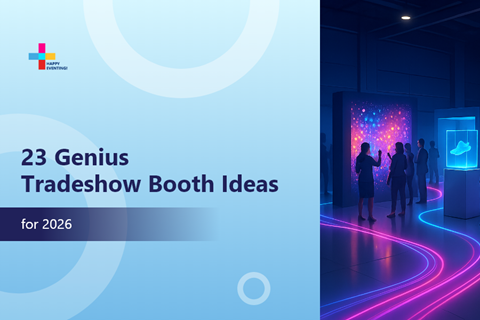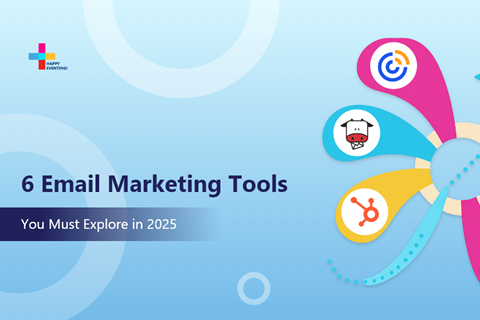

In the event industry, we often see terms used interchangeably, but precision matters. When you're planning a gathering, understanding the difference between a symposium and a conference is more than just terminology—it's a strategic decision that shapes your event's entire design, objective, and technological needs. Getting this right from the outset is crucial for achieving your goals and delivering an experience that truly resonates with your audience. This guide will walk you through the fundamental differences between these two formats, helping you determine which is the right fit for your goals and how to pair it with the perfect event technology stack.
A conference is the industry's powerhouse event. It's a large-scale, often multi-day affair designed for broad knowledge sharing, extensive networking, and professional development across an entire field. Think of it as a comprehensive snapshot of where your industry stands today—and where it's headed tomorrow.
At its core, a conference is engineered to facilitate connections and provide a broad educational platform. The goal is less about solving a specific problem and more about fostering community, showcasing a wide array of new products or research, and giving attendees the tools and contacts they need to grow professionally.
Here's a deeper look at what defines the conference format:
Broad Scope
Conferences operate under a wide thematic umbrella, like "The Future of AI in Event Planning" or "Advances in Sustainable Event Operations." The agenda is intentionally broad to attract a diverse audience. It features multiple tracks running in parallel, allowing attendees to build personalized journeys by hopping between sessions on SEO, content strategy, AI integration, and more—all under one roof.
Large Scale
We're talking hundreds—often thousands—of attendees. This scale is what creates the vibrant, high-energy atmosphere conferences are known for. The audience includes professionals with varying roles and experience levels—from C-suite executives and senior managers to specialists and newcomers eager to learn.
Complex Agenda
The schedule is a complex, multi-layered matrix of activities. It's built around major keynote presentations, specialized breakout sessions, hands-on workshops, and expert panel discussions. This multifaceted agenda is designed to cater to a wide range of interests and learning styles, ensuring there's value for every type of attendee.
Where a conference goes wide, a symposium goes deep. A symposium event is a smaller, more intimate gathering of experts and dedicated practitioners who come together to dissect a single, highly specific topic. It's less about providing a general overview and more about facilitating focused, collaborative exploration of a niche subject.
The ultimate aim of a symposium is to advance knowledge, solve a particular problem, or foster in-depth debate among a small group of experts. The output is often a new consensus, a collaborative white paper, or a set of defined next steps for research in the field.
Let's break down the distinct characteristics of what a symposium is:
Highly Focused
A symposium zeroes in on a single, well-defined theme, such as "Algorithmic Finance: The Rise of Intelligent Investing." Every presentation and discussion is tightly aligned with this central topic. The objective is to move the conversation forward in a very specific domain, not to cover an entire industry.
Expert-Led
The speakers at a symposium are typically leading authorities or seasoned specialists who are invited to share their research and insights. The audience consists of peers who are already knowledgeable about the subject matter. This creates an environment where discussions can begin at a high level, bypassing introductory content and diving straight into the core issues.
Interactive Format
Symposiums are structured to be highly conversational. The format usually consists of a single track of expert presentations followed by extended Q&A sessions, moderated debates, and roundtable discussions. The goal is to spark dialogue and encourage active participation from everyone in the room, turning attendees into contributors.
To make the distinction crystal clear, here's how the two formats compare side by side.
| Feature | Conference | Symposium |
|---|---|---|
| Focus | Broad, multiple topics | Narrow, single topic |
| Size | Large (hundreds to thousands) | Small (dozens to a hundred) |
| Duration | Multiple days | One day or less |
| Format | Multiple parallel sessions | Single track of presentations |
| Audience | Generalists and specialists | Primarily specialists and experts |
| Goal | Broad networking & education | In-depth discussion & problem-solving |
Once this distinction is clear, let's address another commonly confused term: seminar. Many planners use "seminar," "symposium," and "conference" interchangeably, but each serves a different purpose. Understanding these differences helps you decide which format aligns best with your event goals.
While symposiums and seminars both focus on education, the difference between a seminar and a symposium lies in their structure and purpose. A seminar typically features one or two speakers delivering instructional content to an audience in a traditional lecture format, often with limited interaction. The goal is usually skills transfer or knowledge dissemination.
In contrast, what does symposium mean in practice? It means a collaborative forum where multiple expert speakers present on the same specific topic, followed by robust discussions and debates. The difference between symposium and seminar is that symposiums prioritize dialogue and collective knowledge advancement, while seminars emphasize direct instruction from teacher to learner.
Now that we've clarified how symposiums differ from seminars, let's look at another common comparison, how a symposium stands apart from a panel discussion.
Another common question is how a symposium differs from a panel discussion. A panel discussion is typically a single session featuring 3-5 experts who engage in a moderated conversation about a topic, often as part of a larger conference. It typically lasts 60–90 minutes and focuses on bringing together diverse perspectives.
A symposium event, however, is a complete program that may include multiple presentations, several panel discussions, and extended breakout sessions—all centered on one specific theme. While a panel discussion is a format that can exist within many types of events, a symposium is a comprehensive event format unto itself, designed for deep exploration rather than a single conversational session.
Now comes the big question. The sheer scale and complexity of a modern conference demand a robust, all-in-one technology platform. Your tech stack is the central nervous system of the event, responsible for managing logistics, engaging attendees, and proving ROI.
Consider these essential tech solutions for your next conference:
Advanced Registration & Ticketing
Your registration system must be powerful enough to handle complex ticketing tiers—like early bird, VIP, and student passes—along with group registrations and secure, multi-currency payment processing. This is the first touchpoint for your attendees, and it needs to be seamless. This ensures faster check-ins, accurate attendee data, and a frictionless start to your event.
Mobile Event App
The mobile app is the attendee's lifeline. It's where they build their personalized agenda, navigate the venue with interactive maps, receive real-time announcements via push notifications, and access speaker profiles. A well-designed app keeps attendees informed and engaged throughout the event. This drives higher session attendance, better navigation, and increased sponsor visibility.
AI-Powered Networking
For a large and diverse audience, facilitating meaningful connections is a major challenge. AI-powered matchmaking tools are game changers. This technology can analyze attendee profiles to suggest relevant people to meet, recommend sessions based on their interests, and connect qualified buyers with exhibitors. This helps increase qualified meetings, engagement rates, and exhibitor ROI.
Onsite Management Tools
A smooth onsite experience is non-negotiable. This means deploying technology for frictionless check-in with QR code scanning, on-demand badge printing to handle last-minute registrations, and manage session access control for restricted workshops or VIP lounges. This reduces wait times, minimizes staffing requirements, and creates a strong first impression.
Conference Management: Your Event's Command Center
Eventcombo's all-in-one conference management platform acts as your central command center for orchestrating large-scale events. It streamlines every complex workflow, from building multi-track agendas and managing speaker content to simplifying registration and onsite check-in. The integrated mobile app keeps attendees engaged with personalized schedules and real-time updates. After the event, robust analytics deliver the actionable data needed to measure success and demonstrate clear ROI to all stakeholders.
Technology for symposiums plays a different role. Instead of managing massive logistical complexity, the tech stack should be lean, smart, and focused on enhancing discussion, capturing expert content, and fostering collaboration.
Here's the tech you should prioritize for a successful symposium:
Audience Engagement Tools
Since a symposium is all about dialogue, interactive tools are essential. Integrate live polling and dynamic Q&A features to let the audience steer the conversation. Use digital whiteboards during roundtable discussions to collaboratively brainstorm and visualize ideas in real time, making everyone an active participant. This keeps discussions focused, interactive, and measurable for post-event insights.
High-Quality Livestreaming & Recording
Symposiums feature top-tier experts whose insights hold value far beyond the room. Investing in high-quality, multi-camera livestreaming makes this valuable content accessible to a global audience. Furthermore, providing on-demand recordings post-event serves as a lasting digital asset for all attendees. This extends your event's reach, creates evergreen content, and maximizes the value of expert contributions.
Simplified Registration
You don't need a complex registration system with dozens of ticket tiers. A clean, intuitive, and mobile-friendly registration page is all that's required. The focus should be on ease of use and capturing the necessary information without unnecessary friction. This improves completion rates and ensures a smooth attendee experience from the start.
Community Management
The conversation shouldn't end when the symposium ends. A dedicated community space allows your experts to continue discussions, share resources, and network in a private, year-round environment. This transforms a one-day event into a lasting hub for innovation and keeps your specialized group connected and engaged long after they've left the room. This builds lasting relationships, encourages ongoing collaboration, and adds long-term value beyond the event day.
Content & Speaker Hub
A simple event website or a dedicated page within your main site can serve as the central repository for all symposium-related content. This is the place to host speaker bios, link to their published work, upload presentation slides, and provide any pre-reading materials to ensure attendees arrive prepared for a high-level discussion. This enhances preparation, sets professional expectations, and creates a valuable resource library.
Ultimately, while deciding between a symposium and conference, it comes down to your event's primary objective. If your goal is to energize an entire industry, facilitate broad networking, and showcase a wide array of innovations, then a conference is the answer. If you aim to solve a specific problem, advance a niche field of study, or foster deep debate among experts, a symposium is the more strategic choice.
Once you've aligned your format, you can select a technology partner that offers flexibility and scalability to meet your specific needs. The right event platform isn't a one-size-fits-all solution; it's a tailored toolkit that empowers you to execute your vision flawlessly.
Eventcombo delivers a comprehensive event management platform designed to handle every aspect of your event—from intelligent registration systems and mobile apps to AI-powered networking and real-time engagement tools. Our flexible, scalable solutions adapt to your unique requirements, ensuring your event runs seamlessly from start to finish. Don't leave your event's success to chance.
Book a demo with Eventcombo today—let's power your next symposium or conference with technology that delivers results.

In the event industry, we often see terms used interchangeably, but precision matters. When you're planning a gathering, understanding the difference between a symposium and a conference is more than just...

The trade show floor of 2026 will run on attention, with experience as the real currency. Until now, most trade show booths have followed a predictable playbook—static displays, repetitive product loops, and uninspired...

Events aren't just about that “show time.” How you attract attendees matters. How you follow up after the event matters even more. Think of beautiful email templates, targeted automation, and powerful analytics.